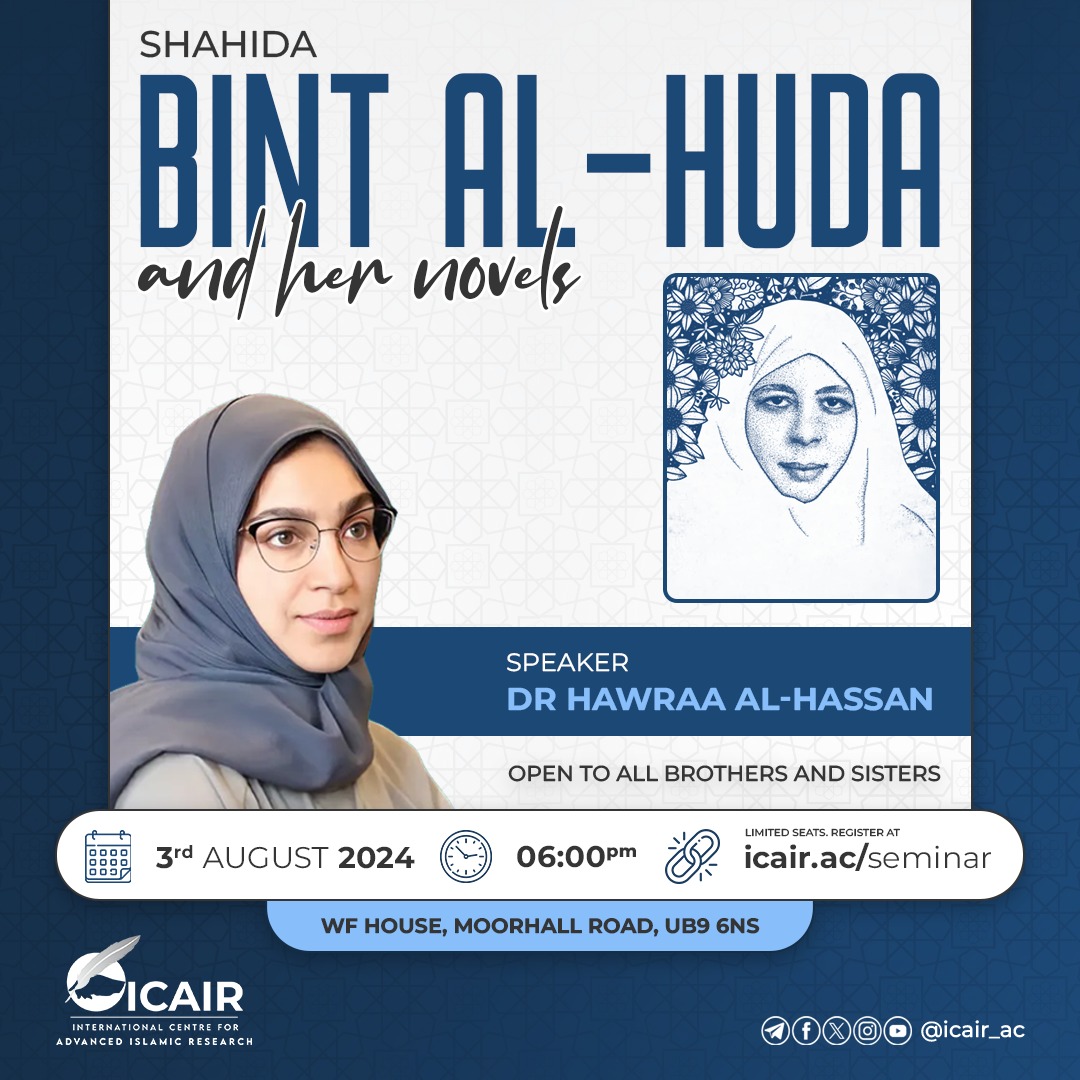
August 4, 2024
On Saturday, August 3rd, the International Centre for Advanced Islamic Research (ICAIR) hosted an in-person seminar at The WF House, titled “Shahida Bint al-Huda and Her Novels.” The lecture was delivered by Dr Hawraa Al-Hassan, an affiliated researcher at the University of Cambridge, whose scholarship explores how modern Arabic fiction intersects with religion, nationalism, and social change.
Dr Al-Hassan discussed how Shahida Bint al-Huda — born Amina Haydar al-Sadr (1938–1980) — used fiction to articulate an Islamic moral vision during Iraq’s secular turn of the 1960s and 70s. Through her novels, she crafted relatable heroines who embodied faith and dignity, and subtly challenged the Baʿth regime’s portrayal of women. Her work, Dr Al-Hassan noted, became both a space of resistance and a refuge for Iraq’s devout, nurturing a sense of identity at a time when religious expression was increasingly marginalised.
The seminar invited reflection on how Bint al-Huda’s writing continues to resonate today — as a reminder of the power of literature to preserve faith, shape conscience, and speak truth amid adversity.
